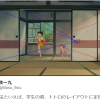For most of its history, Japan was separated from the rest of the world by the surrounding seas and an isolationist policy strictly enforced by its feudal period government. These centuries of isolation led to a unique culture, and it’s long been a favorite challenge for researchers and commentators to try to pin down just what defines the Japanese character.
Chinese news portal BW Chinese recently published a list of characteristics of the Japanese psyche, as originally put forth by Australian Gregory Clark, whose educational and professional career dealing with Japanese sociology, education, and economics has spanned more than five decades.
1. Group mentality
First on Clark’s list is Japan’s well-known propensity for putting the group before the self, and by extension following orders from one’s superiors. Clark points to the danger such a mentality can pose if the controlling force is malicious in nature, illustrating his point with the snowballing nationalism that led to Japan’s overseas aggressions leading up to and during World War II.
In more ordinary circumstances, this tends to manifest itself most noticeably in the workplace. Part of the reason workers in Japan do so much overtime is that it’s traditionally seen as bad form to leave the office before your coworkers, and especially before your boss. Even if you’re done with your individual tasks, it’s considered polite to remain in the workplace, either to lend a hand to your fellow employees or, as is sometimes the case, to busy yourself until everyone is ready to go home.
2. Honesty in dealing with others
Soon after arriving in Japan, when I was still getting used to commuting by train instead of car, I left my bag on the Yamanote Line. As soon as I noticed, I told the stationmaster, who suggested I wait the 60 minutes until the same train came back around, as the Yamanote is a loop line. Sure enough, when it did, my bag was right where I’d left it. Nothing was taken from inside, despite the hundreds of people who’d passed through the carriage with ample opportunity to take whatever they’d liked.
Similarly, Clark speaks of how in Japan, one of the major functions of the police boxes that dot the country is to serve as local lost-and-found centers, which are frequently utilized by honest citizens who find someone else’s unattended property.
3. Respect for order and cleanliness
Along with the obvious example of Japanese travelers following their tour guide in neat, well-disciplined lines, Clark makes mention of the nation’s infatuation with high-tech toilets. Next time you stay at a fancy Tokyo hotel and are baffled by the control panel of your bidet-equipped toilet, remember, each and every one of those switches, buttons, and knobs is there because a designer thought, “You know, someone here in Japan would appreciate this kind of attention and service for their posterior.”
4. Preference for doing things by hand
But despite the acceptance of toilet technology to keep you backside squeaky clean, plenty of things in Japan still get done the old-fashioned way. In the West, writing your resume with a pen is a surefire way to get it pegged as coming from someone who simply doesn’t know how to use a computer, and thus tossed in the trash can. In Japan, on the other hand, job hunters often buy blank resume sheets and painstakingly enter their pertinent information in neat, handwritten characters, as a show of sincerity in their respect for and interest in the position they are applying for. It probably also serves to show that you’re one of the few who can still correctly recall and write kanji characters without relying on a computer to auto-convert it for you!
5. Affinity for teamwork and familial managerial styles
Related to the group mentality mentioned above, Clark says people in Japan work well in groups, whether they take the form of sports teams, student associations, or workplace committees.
Clark also describes the preferred managerial style as being familial in nature. Indeed, Japanese companies often express a desire for open communication between workers and managers, which even influences office interior design. In Japan, managers almost never have separate offices from their direct subordinates. Instead, the entire team sits as a group in the same room, and often at the same table, to facilitate the exchange of ideas and feedback.
6. More open-minded in dealing with things from abroad than people from abroad
Clark touches upon one of the most puzzling dichotomies about Japan. As Japanese travelers increasingly go abroad, and as more foreign visitors come to Japan, this is becoming less of an issue, but in a country that was so homogenous for so long, there are still those whose inexperience means they’re not entirely sure how to interact with people from another culture.
7. Undefined political ideology
Japan’s two largest political parties are the Liberal Democratic Party and Democratic Party. Clark observes that the similarities between the two run deeper than their names, commenting that their platforms tend not to be so different from each other.
Setting aside the possible societal repercussions of a lack of earnest debate at the highest levels of government, this does at least mean that you’re much less likely to have a barbecue ruined by two friends with different political philosophies getting liquored up and tearing into each other than in many other countries.
8. Emotional and aggressive
Although most people who have been to Japan would likely describe the population as calm and reserved, Clark points to the country’s invasion of China in the 1930s as an indicator of aggressive tendencies. We’re not even going to comment on that one…
9. Lack of clear diplomatic or economic policy
Clark characterizes Japanese foreign and economic policy as straddling the line between two courses of action until a decision must be made. He cites this lack of clear direction as being a major cause of Japan’s so-called Lost Decade, the period of economic recession during the 1990s which followed the boom of the 1980s’ Bubble Economy.
10. Lack of critical thinking skills
While praising the Japanese primary and secondary education systems, Clark is unimpressed with the quality of the nation’s universities. Japanese colleges place little emphasis on debate between instructors and pupils, and university is generally seen as the least grueling stage of the Japanese education process, perhaps with the understanding that many Japanese companies will retain their employees for life, providing them with enough on-the-job training to get them up to speed and be successful in their careers. Nevertheless, Clark bemoans what he feels is the system’s inability to properly teach critical thinking skills.
11. Importance of shame in morality
In Japan, one of the heaviest condemnations of character you can lob at someone is “haji shirazu,” or “you have no concept of shame.” Once again tying in to a strong group mentality, people in Japan are usually concerned about the way in which their actions affect others, and so when a mistake is made, it’s something to be taken seriously. It’s no wonder that Japanese has no less than four commonly used ways to say “I’m sorry” (gomen nasai, sumimasen, osore iremasu, and moshiwake gozaimasen).
12. Dislike of lawsuits
Japan is far from a litigious society. Part of this can be attributed to a desire not to cause trouble for others, which often leads people in Japan to put up with situations they’re not really happy with (see sticking around the office even though you’re done with your work, as discussed above).
Even when problems that must be rectified crop up, though, the preferred method is to meet as individuals and try to talk things out without getting extensive legal teams involved. This can be easily seen in the length of Japanese business contracts, which tend to be rather short by Western standards, with the understanding that should there be any bumps in the road, both sides will work towards a mutually amicable resolution.
As expected from someone with his level of experience in the field of Japanese studies, Clark makes several compelling observations. At the same time, a number of illustrations come from over 60 years ago. In the time since, Japan has evolved and grown. The nation is now made up of over 120,000,000 individuals, and, as the word implies, each has their own, unique mindset. These points make a nice primer, but the best way, by far, to understand the “Japanese character” is to spend time in the country, interacting with its people.
Source: Yahoo! Japan

 Vietnam mulling moniker modification as part of constitutional revisions
Vietnam mulling moniker modification as part of constitutional revisions Auntie Power: Japan’s Older Women Form “Obachan” Party
Auntie Power: Japan’s Older Women Form “Obachan” Party What’s the best way to close the gender gap in Japan? Japanese women weigh in
What’s the best way to close the gender gap in Japan? Japanese women weigh in Daiso’s Standard Products store — what’s worth buying and what’s not? Our expert weighs in
Daiso’s Standard Products store — what’s worth buying and what’s not? Our expert weighs in Japanese government gives examples of what qualifies as “hate speech” in anti-discrimination law
Japanese government gives examples of what qualifies as “hate speech” in anti-discrimination law Potama serves up epic rice balls like no other, and there’s only one store in Tokyo
Potama serves up epic rice balls like no other, and there’s only one store in Tokyo Lawson adds doughnuts to its convenience store sweets range, but are they good enough to go viral?
Lawson adds doughnuts to its convenience store sweets range, but are they good enough to go viral? Manga artist raises question online about false perspective in Ghibli film My Neighbor Totoro
Manga artist raises question online about false perspective in Ghibli film My Neighbor Totoro We investigate Sendagaya Tunnel and get a message from beyond【Haunted Tokyo】
We investigate Sendagaya Tunnel and get a message from beyond【Haunted Tokyo】 Viral Japanese cheesecake from Osaka has a lesser known rival called Aunt Wanda
Viral Japanese cheesecake from Osaka has a lesser known rival called Aunt Wanda Nintendo releases Metroid-shaped ice cube/cooking tray and Samus arm cannon pillow【Pics】
Nintendo releases Metroid-shaped ice cube/cooking tray and Samus arm cannon pillow【Pics】 10 Tokyo-area restaurants dieters should skip, but everyone else should definitely visit
10 Tokyo-area restaurants dieters should skip, but everyone else should definitely visit Chance to play Teris on a massive staircase in Kyoto Station coming in March
Chance to play Teris on a massive staircase in Kyoto Station coming in March Every weekend is an itasha car show at Akihabara’s UDX parking garage
Every weekend is an itasha car show at Akihabara’s UDX parking garage Death Spray from Japan causes buzz online for powerful ability to cut ties with bad energy
Death Spray from Japan causes buzz online for powerful ability to cut ties with bad energy Starbucks Japan releases first-ever Hinamatsuri Girls’ Day Frappuccino
Starbucks Japan releases first-ever Hinamatsuri Girls’ Day Frappuccino Japanese restaurant chain serves Dragon Ball donuts and Senzu Beans this spring
Japanese restaurant chain serves Dragon Ball donuts and Senzu Beans this spring Highest Starbucks in Japan set to open this spring in the Tokyo sky
Highest Starbucks in Japan set to open this spring in the Tokyo sky Japan Extreme Budget Travel! A trip from Tokyo to Izumo for just 30,000 yen [Part 1]
Japan Extreme Budget Travel! A trip from Tokyo to Izumo for just 30,000 yen [Part 1] Japan has only one airport named after a samurai, so let’s check out Kochi Ryoma【Photos】
Japan has only one airport named after a samurai, so let’s check out Kochi Ryoma【Photos】 Japan Extreme Budget Travel! A trip from Tokyo to Izumo for just 30,000 yen [Part 2]
Japan Extreme Budget Travel! A trip from Tokyo to Izumo for just 30,000 yen [Part 2] Japan’s craziest burger chain takes menchi katsu to new extreme levels
Japan’s craziest burger chain takes menchi katsu to new extreme levels Japanese drugstore sells onigiri at pre-stupid era prices, but how do they compare to 7-Eleven?
Japanese drugstore sells onigiri at pre-stupid era prices, but how do they compare to 7-Eleven? Yakuzen ramen restaurant in Tokyo is very different to a yakuza ramen restaurant
Yakuzen ramen restaurant in Tokyo is very different to a yakuza ramen restaurant Tokyo Skytree turns pink for the cherry blossom season
Tokyo Skytree turns pink for the cherry blossom season Japan’s newest Shinkansen has no seats…or passengers [Video]
Japan’s newest Shinkansen has no seats…or passengers [Video] Starbucks Japan releases new sakura goods and drinkware for cherry blossom season 2026
Starbucks Japan releases new sakura goods and drinkware for cherry blossom season 2026 Foreigners accounting for over 80 percent of off-course skiers needing rescue in Japan’s Hokkaido
Foreigners accounting for over 80 percent of off-course skiers needing rescue in Japan’s Hokkaido Super-salty pizza sends six kids to the hospital in Japan, linguistics blamed
Super-salty pizza sends six kids to the hospital in Japan, linguistics blamed Starbucks Japan unveils new sakura Frappuccino for cherry blossom season 2026
Starbucks Japan unveils new sakura Frappuccino for cherry blossom season 2026 Foreign tourists in Japan will get free Shinkansen tickets to promote regional tourism
Foreign tourists in Japan will get free Shinkansen tickets to promote regional tourism The 10 most annoying things foreign tourists do on Japanese trains, according to locals
The 10 most annoying things foreign tourists do on Japanese trains, according to locals Take a trip to Japan’s Dododo Land, the most irritating place on Earth
Take a trip to Japan’s Dododo Land, the most irritating place on Earth Naruto and Converse team up for new line of shinobi sneakers[Photos]
Naruto and Converse team up for new line of shinobi sneakers[Photos] Is China’s don’t-go-to-Japan warning affecting the lines at a popular Tokyo gyukatsu restaurant?
Is China’s don’t-go-to-Japan warning affecting the lines at a popular Tokyo gyukatsu restaurant? Survey asks foreign tourists what bothered them in Japan, more than half gave same answer
Survey asks foreign tourists what bothered them in Japan, more than half gave same answer Japan’s human washing machines will go on sale to general public, demos to be held in Tokyo
Japan’s human washing machines will go on sale to general public, demos to be held in Tokyo Starbucks Japan releases new drinkware and goods for Valentine’s Day
Starbucks Japan releases new drinkware and goods for Valentine’s Day We deeply regret going into this tunnel on our walk in the mountains of Japan
We deeply regret going into this tunnel on our walk in the mountains of Japan Studio Ghibli releases Kodama forest spirits from Princess Mononoke to light up your home
Studio Ghibli releases Kodama forest spirits from Princess Mononoke to light up your home Major Japanese hotel chain says reservations via overseas booking sites may not be valid
Major Japanese hotel chain says reservations via overseas booking sites may not be valid Put sesame oil in your coffee? Japanese maker says it’s the best way to start your day【Taste test】
Put sesame oil in your coffee? Japanese maker says it’s the best way to start your day【Taste test】 No more using real katana for tourism activities, Japan’s National Police Agency says
No more using real katana for tourism activities, Japan’s National Police Agency says Japan second-least attractive country for expats to work, survey says, but is it really that bad?
Japan second-least attractive country for expats to work, survey says, but is it really that bad? Why is Japanese customer service so amazing? Because in Japan it’s one strike and you’re out
Why is Japanese customer service so amazing? Because in Japan it’s one strike and you’re out Japanese politeness is a myth: One person’s tale strikes a chord with people around the country
Japanese politeness is a myth: One person’s tale strikes a chord with people around the country Cosplay organization receives official government grant from Tokyo’s Ota Ward
Cosplay organization receives official government grant from Tokyo’s Ota Ward Japanese workers reveal the 8 most astonishing things new employees do in the workplace
Japanese workers reveal the 8 most astonishing things new employees do in the workplace 5 discriminatory interview questions employers in Japan are no longer allowed to ask
5 discriminatory interview questions employers in Japan are no longer allowed to ask New school in Iraq to provide a Japanese-style education
New school in Iraq to provide a Japanese-style education Which Japanese anime character should be Prime Minister of Japan?
Which Japanese anime character should be Prime Minister of Japan? 5 powerful reasons to be a woman in Japan 【Women in Japan Series】
5 powerful reasons to be a woman in Japan 【Women in Japan Series】 Japanese train conductor flips off rail fan photographer, prompts apology from JR
Japanese train conductor flips off rail fan photographer, prompts apology from JR Just when you thought you knew it all – 17 life-changing lessons learned in Japan
Just when you thought you knew it all – 17 life-changing lessons learned in Japan Shohei Ohtani amazes Major League Baseball with his impeccable Japanese manners
Shohei Ohtani amazes Major League Baseball with his impeccable Japanese manners